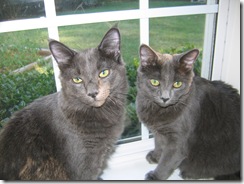I know you’re waiting with bated breath with a burning question—how have I banished clichés from my writing? This post is not; in any way, shape, or form; intended to be a bone of contention for people inclined to use clichés. In fact, there have been many books which have gotten glowing reviews that I’ve had the privilege to read that have clichés scattered throughout. To make a long story short, clichés do stick out like a sore thumb and should be used with caution. Although that’s easier said than done.
Okay, I’ll stop. :) That was painful.
As I’m reading over my odious first paragraph, the clichés are obvious. But when I’m speedily typing along on my WIP, clichés may not jump out at me (Lord. Now I’ve written in so many clichés that I can’t even stop. Strike ‘jump out at me’ for ‘stand out.’)
Editors hate them unless you turn the cliché into something fresh and different. So, instead of writing ‘He couldn’t make ends meet,’ you could say something like ‘He couldn’t make ends meet….or even make beginnings meet.’ Not very clever, but you get the drift.
Or you could just reword the cliché completely.
Are clichés ever good? Actually, they can be useful if you’re coming up with a humorous title for your book. My August release is Pretty is as Pretty Dies….a takeoff on the old saying “pretty is as pretty does.”
There are a few great sites that focus on clichés. Want to look up a cliché by letter? Go to the Cliché Site. Cliché Finder is another great site. Another is a site that instructs journalists which lists commonly-used hackneyed expressions to avoid.



